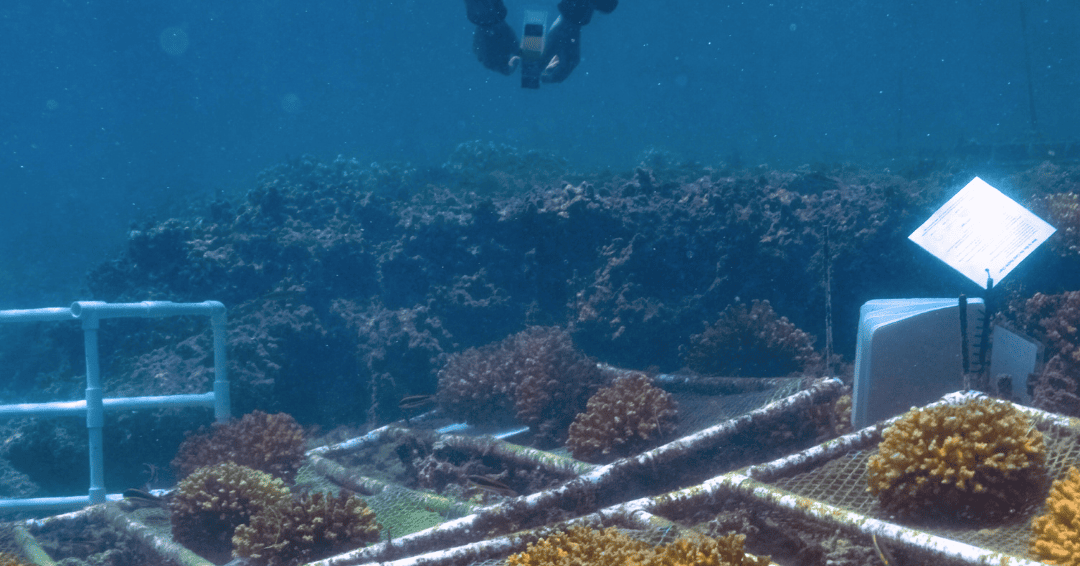Project title: Harnessing resilience for the future: unraveling the mechanisms behind temperature tolerance in Eastern Tropical Pacific corals for strategic reef restoration and adaptive management
Lead applicant: Dr. Ana Lucía Castrillón-Cifuentes
Co-applicants: Dr. Fernando A. Zapata, Dr. Ana Palacio, Dr. Ana M. Millan-Marquez
Countries involved: Colombia, USA
Takes place: Gorgona National Natural Park (Colombia)
Supporting institutions: ECOMARES NGO, Universidad del Valle, University of Miami
Total budget: USD 99,968
Duration: 24 months
Project overview
Coral reefs in the Eastern Tropical Pacific (ETP) endure repeated disturbances and extreme environmental conditions, including severe warming episodes. While these reefs have shown remarkable resilience, the mechanisms behind their tolerance to heat and other stressors remain poorly understood. This knowledge gap limits the ability to design effective restoration strategies and prepare for the impacts of climate change.
Understanding what underpins ETP reef resilience could be key to predicting how corals will survive in the coming decades. Scientists hypothesize that resilience may stem from several factors: the natural selection of stress-resistant coral species or genotypes, the ability of corals to associate with heat-tolerant symbionts, or shifts in the composition of symbiont communities.
This project will test all three possibilities, with the ultimate goal of identifying which mechanisms drive resilience in the ETP. The team will pinpoint coral species, genotypes, and coral–symbiont partnerships that enhance thermo-tolerance. These insights will guide the creation of a coral nursery stocked with heat-resistant corals and provide a framework for selecting and propagating stress-tolerant corals for adaptive reef restoration.
Beyond the field site, the results will be shared with the wider scientific and restoration communities to strengthen conservation efforts across the region—and to support the local communities who rely on these reefs for food security, coastal protection, and livelihoods.
Specific objectives
- Establish the thermal limits of the primary ETP reef-building species and assess potential mechanisms involved in heat tolerance.
- Determine which ETP coral species can enhance their heat tolerance by acquiring and maintaining heat-tolerant algal symbionts. This includes investigating the persistence of algal-driven heat resistance over a year.
- Identify holobionts (coral species/genotypes and algal symbiont combinations) with heightened potential to withstand thermal stress.
How the objectives will be met
- Establish corals’ thermal limits: collect 10 colonies from each target species from reefs off Gorgona Island (Pocillopora spp., Pavona clavus, and Porites lobata).
- Short-term experiments (7 hours): assign coral fragments from each colony to four temperature treatments:
- (1) 27.8°C (control, the local maximum monthly mean (MMM))
- (2) 29.8°C (MMM + 2°C)
- (3) 31.8°C (MMM + 4°C)
- (4) 33.8°C (MMM + 6°C)
- Long-term experiments (60 days): assign coral fragments from each colony to three temperature treatments:
- (1) 27.8°C (control, the local maximum monthly mean (MMM))
- (2) 28.8°C (MMM + 1°C)
- (3) 29.8°C (MMM + 2°C)
- Determine which ETP coral species can enhance their heat tolerance: Monitor coral recovery and mortality daily for the first week and assess 4, 8, and 12 months. Data on survivorship, growth, photochemical efficiency (Fv/Fm), color-scaled photos, and tissue biopsies will be collected to track coral performance and algal community evolution over time.
- Identify holobionts: Assess the composition of algal symbiont communities (before and during heat stress experiments) and their trajectories during recovery. Propagate surviving corals in nurseries. After a year, a subset of fragments will be tested to evaluate:
- Whether pre-exposure to heat stress increased heat resistance.
- If higher heat resistance is associated with the acquisition and maintenance of thermotolerant symbionts.
Impact of the project
- Identification of particular combinations of coral species/genotypes with particular algal symbionts that might confer enhanced thermo-tolerance.
- Critical information to guide restoration in the region.
- Advanced training for local researchers.
- Facilitate knowledge transfer to restoration practitioners in Colombia and Costa Rica.
- The first coral nursery in the ETP stocked with proven heat-resistant corals, ready for restoration initiatives.
- A protocol for selecting, testing, and propagating stress-resistant corals, empowering environmental managers to adapt restoration strategies to local conditions.
Major highlights
- New insights into reef resilience in the Eastern Tropical Pacific.
- Combines advanced techniques, long-term thermal stress experiments, and molecular tools to assess coral and symbiont responses to heat stress.
- Includes training local researchers, practitioners, and environmental managers in advanced restoration techniques, fostering regional expertise and collaboration
- Findings and methodologies are expected to be transferable to other regions with similar environmental conditions.

